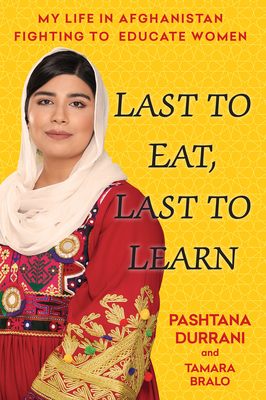What do you think?
Rate this book


224 pages, Hardcover
First published May 23, 2023
📚 “There was something in all this that I found puzzling. Not the beatings – domestic violence behind closed doors is common, even us kids knew that. It was the fact that Zarghona lived with her mother, her stepmother, and three sisters and all of them were beaten daily. Six women beaten by a single man. I thought I had the solution and wondered why no one else thought of it: they could beat him up. Once I voiced my avenger fantasy in front of Sarghona and my mother, there was stunned silence. Mistaking it for encouragement to continue speaking, I emphasized: “There are six of you!” My mother was still silent; my remark apparently was so exceedingly stupid and uniformed that it didn’t even deserve a flying chaplak. Suddenly, I was the one to pity. ‘It’s not how things work,’ Zarghona explained tiredly, assuming the role of a nanny. ‘But why?’ I insisted.”
📚 “She wasn’t going to go to school anymore; she got married, her father explained. Her new husband was a widower, in his late thirties, with three small children, and he needed someone to raise those children. Pashtana’s father explained he had no choice but to marry her off because he couldn’t feed her anymore. She would be better off this way, he said. Pashtana was nine years old. I knew about little girls getting married; it’s everywhere around you, all these disappearing girls. But Pushtana was different. She was my measure of things, my ordering of the world. How could she be so easily erased? It was an end as final as death, without even being granted a funeral.”
📚 “I reached out to Rumie, and we hit it off immediately. Rumie is one of those rare organizations that seemed unaware of the existence of a box that one is supposed to be thinking in. They had a penchant for unconventional ideas, and as my idea was borderline crazy, it definitely qualified.”
📚 “He talked about how much he’d been struggling with developing the girls’ imagination. ‘It is possibly the biggest issue we face as educators here.’ I nodded; I knew how hard it must be to shape minds already defeated by life. The girls were taught to look down at their shuffling feet from the moment they’re born. Developing imagination requires looking up. Encouraging it requires a concrete, detailed map, not platitudes and slogans about what’s achievable.”
📚 “Elated, I didn’t care that, yet again, I had no money for a cab, that it would take me hours to get home. Who needs a taxi anyway? All those times when I had to choose between developing content and getting to eat now seemed worth it. The Lion King girl, whose imagination I personally helped develop, was going to be an artist”
📚 “Everybody assumed the old lady was a relative who just missed the wake, so one of my cousins followed her to thank her for coming and extend the invitation to see the family. She declined, saying that she wasn’t related to us and that she couldn’t possibly go. ‘Why then,’ my cousin asked, ‘did you come?’ ‘It was thirty years ago that I lost my husband in the war. I ended up on the street with my children, begging. I had nowhere to go.’ My father, whom they had never met before, happened upon them and took her and her children in. Wiping her tears she said, ‘When I heard he died, I wanted to thank him one more time for his kindness. I wanted God to know how grateful I was.’”
📚 “For years he’d been asked, ‘Why do you always take the girl with you?’ Time after time, my father would let it be known that he took offense to me being called the ‘girl.’ ‘She’s my child.’ It wasn’t the semantics. It’s a distinction few outside Afghanistan could ever understand, but here, it made a world of difference. My father knew his people well. The label of ‘child’ and not ‘girl’ apparently made me an exception to the fule in the eyes of the tribe, and this gave me a head start. I was already in the public sphere, not a space that was easily granted to a woman.”
📚 “As devastating, as humiliating as it was to watch the country slowly fold, I understood the lack of resistance too. How many sons are you meant to sacrifice to a government that doesn’t care, that doesn’t fix, that requires more and more blood to be spilled without giving anything in return?”
📚 “... I kept thinking of the woman of Kandahar Province. They couldn’t even post their misery. Over half of them are illiterate. They’ll perish in silence behind closed doors, the way they lived. It will be like they never really existed.”
📚 “We were okay, if just for that one moment. I don’t know how our story ends. Not for Afghanistan, not for my girls, nor for my family. Not even for me. It doesn’t matter. Sometimes, all you can do is just keep writing.”